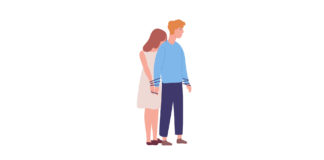Good or bad: How we come to love negative characters
It is as surprising as it is real: negative characters like Dexter Morgan, from the eponymous Dexter, and Walter White, from Breaking Bad, have been cropping up in popular culture more and more often lately. Since when, how, and why have anti-heroes gained so much popularity?
Why much of what we know about ourselves is false
Two groups of participants in an experiment received a set of eight questions similar to those found in IQ tests.[1] One of the groups was provided with the correct answers, which they could use to calculate their final score. Thus, for them, the conditions for cheating were favourable, and the test results showed that the members of this group obtained, on average, a...
3 features of self-loathing people that can transform them
In sync with our modern culture, many people obsess about self-esteem, not really knowing what it means. Giving up self-loathing seems to them an impossible task. And indeed, how does one reach self-respect? Instead of a straightforward answer, here are some insightful questions to prove that you are worthy and that you can trust yourself.
Two steps back, but three steps forward
On the morning of the 15 November 2016, I awoke in a hospital bed, with no memory of how I got there. My favourite pyjamas had been torn from my body, and I lay in a hospital gown, a piercing pain in my head, impaling my brain. I was barely able to think and incapable of speech. I was scared, though this was...
Laughter, not noise: the benefits of good humour
A cheerful heart is good medicine, but a crushed spirit dries up the bones, says a well-known biblical proverb. We don't have to be practicing Christians to recognise its truth.
It’s about guilt
Mainstream culture has tried to airbrush guilt out of everyday life. It’s the ultimate social faux pas, it seems, to make someone feel guilty—How dare you judge me! Or maybe it’s the penultimate faux pas, because what’s even worse than making someone feel guilty inside is to shame them in front of others.
What about the failures that haunt us?
A smooth sea never gave a skilled sailor, said Franklin D. Roosevelt, suggesting that without hardship, challenges and even failures, we cannot become our best selves.
The boy who didn’t believe in ‘impossible’
We know their stories, or we think we know them. Theirs are stories of success that earn the admiration of the entire world. We see the moment of victory and wish we could be in the place of the victorious ones, without realising the effort and sacrifice that are behind that moment of glory. If we truly grasped this, we might become more...
Addiction prevention | Risk and protective factors
At 51, C.M. is a shadow of his former self. A shadow who has escaped lung cancer but it's mouth cancer that keeps him away from the cigarettes to which he was inextricably linked for 44 years. He swallows with difficulty, even saliva, and is always thirsty.
A generation that breathes anxiety
“You are always afraid people will judge you or know your weakness. It’s like being totally naked in front of a huge crowd,” says Bruno Feldeisen about the hidden struggle he had with anxiety.
Why should you tell your friends your secrets?
In 2004, Frank Warren, an American businessman, had "a crazy idea," as he himself describes it. He printed 3,000 postcards, wrote his address on them and a series of instructions, then left space on the back for the sender to write secrets they had never shared with anyone before.
What could console our terrible fear of death?
Along with the rising death toll due to coronavirus complications, a usually latent aspect of our fear becomes harder to ignore. Despite the fact that it is the only certainty we all share, realising that our own end is a reality we might need to confront sooner than we had thought leaves many of us fervently searching for consolation.
Codependency: a concept too widely used to have a single definition
A word is dead when it is said, some say. I say it just begins to live that day. – Emily Dickinson
Never enough likes
The American Economic Review recently published the results of the largest randomized study ever conducted to measure the impact on the quality of life that deactivation ones Facebook account might have.
COVID-19: When time no longer means money
As a teenager, I remember pasting a quote from Blaise Pascal on the wall of my room. It was a thought I resonated with, not without some arrogance: "All of humanity's problems stem from man's inability to sit quietly in a room alone."


























